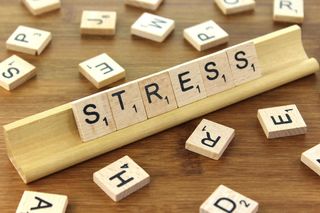Stress
Acute American Anxiety (AAA) Disorder: A New Diagnosis?
Are we all suffering from an acute stress disorder due to recent events?
Posted October 16, 2017

Serious stress, anxiety, and fear are in the air and seem pervasive in our country and culture with symptoms seemingly getting worse by the day. This stress is fueled by a wide variety of national and international issues and traumas impacting or threatening our safety, well-being, way of life, and even survival, as well as those of millions, if not billions, of others. The rising and serious threat of war, including nuclear war, with North Korea (with the fate of the world perhaps in the hands of two controversial and impulsive leaders whose judgement and mental health have been seriously questioned by many experts), the unprecedented political vitriol and rancor that shapes and divides us, the potential loss of health care for millions, the current record-breaking California fires centered in the wine country of Sonoma and Napa counties but impacting the entire Bay Area and beyond, the multiple record-breaking hurricanes striking the southeast section of our country and the Caribbean, the Mexico City area earthquake, the destabilization and war in Syria and elsewhere resulting in unprecedented migration of refugees, the recent, record-breaking, and devastating shooting in Las Vegas, and so forth all collectively adds significant stress and anxiety to our community. In fact, the word, apocalypse, seems to be on the lips of many of my colleagues, students, friends, and neighbors of late. No wonder we seem to be experiencing a community-wide stress disorder which I am calling, for a lack of a better phrase, Acute American Anxiety (AAA) Disorder.
You can get a good sense of the pervasiveness of this collective stress and strain by striking up a conversation with anyone about current events and concerns. You'll clearly sense the anxiety, fear, pressured speech, and discombobulation that most people seem to be experiencing and you can even feel it when talking with strangers in public.
While there are no easy or simple solutions to manage our stress, there are three important principles that might help us cope better with the unprecedented events that afflict most of us.
First, we all need to be thoughtful and proactive about taking care of ourselves and be sure that we use the best available evidence and practices to cope in ways that are health-promoting (e.g., exercise, talking about it with supportive others) rather than health damaging (e.g., abusing alcohol and drugs, engaging in violence). The American Psychological Association (APA) has a wide variety of helpful stress management resources that you might review here.
Second, we need to work through our potential denial to adjust our activities and plans to accommodate the reality of our current and future situation, which might mean getting more involved in political and advocacy matters that are important to us, developing emergency and evacuation plans, revisiting and reconfirming our core values and acting on them, and so forth.
Third, we need to help others and connect with all who may be struggling the most. Perhaps surprising to some, we cope better when we make ourselves available to others helping those in need with their challenges. Research in psychology and helping behavior called the “tend and befriend theory” informs us that during a time of high stress, reaching out and helping others helps us cope better. We help others and while doing so, help ourselves. Finding the commonalities in others (even those we may not like or agree with) and treating everyone the way we wish to be treated could go a long way to helping all of us manage stress better.
So, perhaps now more than ever, we need to maximize kindness and gentleness with each other. Our country and perhaps much of the world has rarely experienced a collective series of threatening challenges in recent decades that impacts us all. Coping with these challenges is easier and better when we try our best to control and plan for what we can control while caring for others in solidarity and with kindness. Following these principles may help us make the most out of a very difficult collective trauma so that our stress will dissipate, or at least be better managed, over time.
So what do you think?


